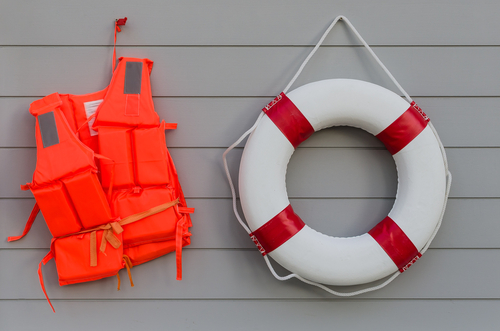Whilst boating safety has improved and the maritime fatality number has fallen in recent years, there are still upwards of 200 boating incidents in NSW each year. Whether you are occupying, or in particular, operating a marine vessel, it is vital to ensure the safety of those around you. Boating injuries can be caused by irresponsible operation and upkeep of your vessel, so it is important to keep this in mind whilst preparing for a day on the water.
According to the Transport for NSW statistical report 2018, the most common boating incidents occur due to collisions with other vessels, towing incidents, capsize, falling overboard, persons being hit by vessels, propeller contact, fume inhalation and issues relating to the safety of the vessel itself. In the case these events materialise, you could be entitled to a claim for any suffering caused; this includes damages (compensation) for past and future loss of earning capacity, loss of amenities of life and treatment expenses.
We have compiled a list of important boating safety tips to ensure you do not engage in negligent conduct on your boating ventures:
- Ensure there are adequate lifejackets and emergency safety equipment on board your vessel. According to the NSW Boating Handbook, these can include compliant lifejackets for your vessel size, flares, bilge pumps, buckets, compass, fire extinguisher, paddles, sound signal and a waterproof floating torch – this equipment must be kept in good condition and easily accessible. It is also helpful to explain to your passengers where the safety equipment is located. Note there are additional requirements for open waters as opposed to enclosed waters, and recreational as opposed to commercial vessels.
- Always check the weather forecast and tides prior to departure; use your common sense if you notice rapidly changing weather conditions and play it safe by heading back to shore.
- Like motor vehicles, marine craft have rules pertaining to driving under the influence and police regularly conduct random breath testing in NSW waterways. Blood alcohol content levels must remain below 0.05, as with motor vehicles, except when operating commercial vessels which must remain below 0.02. Your BAC can change depending on your size, weight and fatigue level so it is important to ensure you have a designated skipper if you intend on drinking more than the legal limit.
- Take steps to ensure no one is in close proximity when manoeuvring the boat, in particular reversing. In the case of Nixon v Lines (2017), it was found that the defendant breached his duty of care when he reversed his houseboat and unknowingly struck the plaintiff with the propellers. The Court suggested that in order to take precautions against the risk of harm, the defendant could have taken steps to ensure no one was behind the boat before he reversed it. Alternatively, he could have asked someone in a position to see the back deck to tell him if there was anyone behind the boat. The key message to be taken from this case is to always check your surroundings before operating your vessel.
- If you are diving off the vessel, ensure the water is deep enough to do so. Diving into water of uncertain depth has been deemed a ‘dangerous recreational activity’ in Laoulach v Ibrahim (2011). This means that the defendant will not be liable in negligence for any harm suffered.
- Ensure you have a valid boat license if you plan on travelling faster than 10 knots and check that your boat registration is up to date (if necessary for your vessel).
- If you are involved in a boating accident, make sure to take photos of the incident scene if possible and collect the contact numbers of all the witnesses.
In the unfortunate event that you or anyone you know has been injured in an accident, you may be entitled to compensation. For more information, and to arrange a free, no obligation assessment of your claim, please call Stacks Goudkamp on (02) 4058 3114 or alternatively make an online enquiry.
Written by Lucy Hardyman



